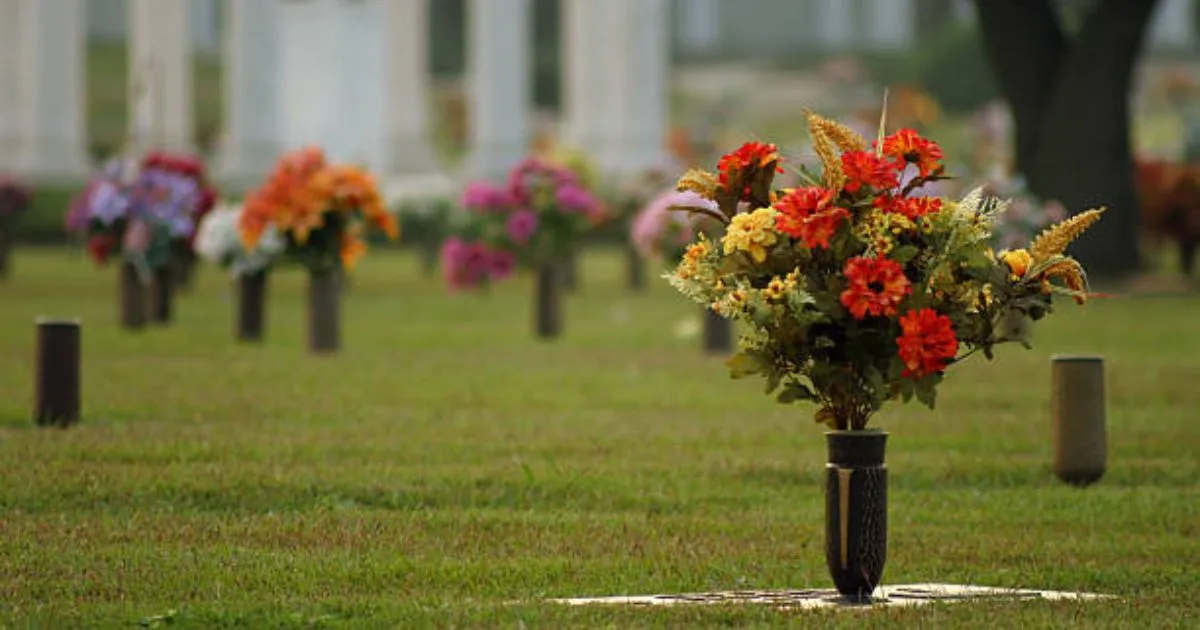Table of Contents
Funeral Flowers Guide 2024
Flowers have a language of their own, and in times of grief, they speak volumes. When words are hard to find, funeral flowers become a symbol of love, respect, and remembrance. But with so many options, it can be challenging to know which flowers or arrangements best honor a loved one and offer comfort to grieving families. This guide will walk you through everything you need to know about funeral flowers—from their meanings and etiquette to the different arrangements available and cultural considerations—helping you choose a fitting tribute.
The Significance of Funeral Flowers
Funeral flowers serve as a heartfelt tribute to the deceased, offering both beauty and symbolism during times of sorrow. Over centuries, certain flowers have come to represent specific emotions and meanings when used in funerals. These meanings help convey feelings of love, respect, and sympathy when words simply aren’t enough.
Common Funeral Flowers and Their Meanings:
- Lilies: One of the most common flowers used in funerals, lilies symbolize purity and peace, often associated with the soul’s return to a state of innocence after death.
- Roses: Roses carry various meanings based on their color. Red roses symbolize deep love and respect, white roses reflect purity and innocence, and yellow roses represent friendship and caring.
- Carnations: Carnations are known for their long-lasting quality. Red carnations signify admiration, while white carnations represent pure love and remembrance.
- Chrysanthemums: Particularly in European and Asian cultures, chrysanthemums are often associated with death and mourning, symbolizing honor and loyalty.
Flower Colors and Their Significance:
The color of flowers in funeral arrangements carries its own symbolic meaning. White flowers are associated with peace and reverence, while red flowers convey love and respect. Yellow flowers symbolize strong friendships, and pink flowers can express grace and sympathy.
Popular Funeral Flower Arrangements
Choosing the right funeral flower arrangement can be a meaningful way to show sympathy and respect. Each type of arrangement serves a specific purpose and setting, whether it’s for the funeral service or for the family’s home.
Common Types of Funeral Flower Arrangements:
- Wreaths: The circular shape of a funeral wreath symbolizes the eternal cycle of life and is one of the most traditional arrangements. It’s often placed near the casket or at the entrance of the service.
- Standing Sprays: Displayed on easels and usually placed near the casket or altar, standing sprays are visible from all angles, offering a dramatic and elegant tribute.
- Bouquets: These versatile arrangements can be sent to the funeral service or directly to the family’s home. They are typically smaller but still convey deep sympathy.
- Casket Sprays: Casket sprays are large arrangements placed directly on top of the casket. They are usually chosen by the immediate family and come in full or half-size options, depending on whether the casket is open or closed.
- Crosses and Hearts: These religious and emotional symbols are crafted using flowers and are often chosen to express faith (crosses) or deep love (hearts).
Choosing the Right Arrangement for the Occasion:
The type of arrangement you choose often depends on your relationship with the deceased and the service’s tone. Immediate family members typically opt for larger, more prominent arrangements like casket sprays, while friends and extended family might select smaller wreaths or bouquets.
Funeral Flower Etiquette
Knowing when and how to send funeral flowers is crucial for ensuring your gesture is respectful and appropriate. Different relationships, traditions, and timing factors all play a role in funeral flower etiquette.
Who Should Send Funeral Flowers?
- Immediate Family: Close family members, such as spouses or children, often send significant arrangements like casket sprays or standing sprays.
- Extended Family and Friends: Extended family members and friends typically send wreaths, bouquets, or sympathy baskets to the funeral home or the family’s residence.
- Colleagues or Acquaintances: For work colleagues or acquaintances, smaller arrangements or sympathy plants sent to the home are appropriate.
When Should You Send Funeral Flowers?
- Before the Funeral: Ideally, flowers should arrive before the funeral service begins so they can be displayed during the service.
- After the Funeral: It’s also common to send flowers to the family’s home after the funeral as a gesture of ongoing support.
Messages to Include with Funeral Flowers
A thoughtful message can offer extra comfort. Some appropriate examples include:
- “With deepest sympathy.”
- “In loving memory of [Deceased’s Name].”
- “Our thoughts are with you in this time of sorrow.”
Cultural Considerations
Different religions and cultures have varying traditions regarding funeral flowers. For example, flowers are common in Christian services but not in Jewish funerals, where donations are often preferred. In some Asian cultures, white chrysanthemums are used as a symbol of grief, while in others, red flowers are inappropriate for funerals.
Alternatives to Traditional Funeral Flowers
Not every family prefers traditional flower arrangements, and there are several meaningful alternatives that can reflect the deceased’s personality or wishes.
Sympathy Plants: Long-lasting plants, like peace lilies or orchids, can serve as a living reminder of your sympathy. They often outlast cut flowers and provide ongoing comfort to the family.
Charitable Donations: Many families request donations to a charitable cause in lieu of flowers. This could be a cause the deceased supported, such as a local charity or research organization.
Memorial Trees: Planting a tree in honor of the deceased is a lasting tribute that not only honors their memory but also contributes to the environment. Memorial trees can be planted in a private yard, a public space, or through organizations that plant trees in remembrance.
Eco-Friendly Alternatives: Biodegradable wreaths and arrangements made from natural materials are gaining popularity. These eco-friendly options minimize environmental impact while serving as a fitting tribute.
Budgeting for Funeral Flowers
Funeral flowers can range in price, and it’s important to set a budget that suits your needs while still honoring the deceased.
Average Costs of Funeral Flowers
- Small Bouquets: These range from $40 to $100 and are ideal for sending to the family’s home.
- Wreaths and Standing Sprays: These typically cost between $150 and $350, depending on the size and flower types.
- Casket Sprays: More elaborate, these arrangements can range from $250 to $600 and are generally provided by the immediate family.
Budget-Friendly Options
If you’re working with a limited budget, consider smaller arrangements or simpler bouquets with affordable flowers like carnations or chrysanthemums. You can also pool resources with other family members or friends to share the cost of larger arrangements.
Where to Buy Funeral Flowers in 2024
In 2024, both online and local florists offer reliable services for purchasing funeral flowers. Each option has its own benefits, depending on your needs.
Online Florists
Online florists, such as FTD, 1-800-Flowers, and Teleflora, offer convenience and same-day delivery options, making them ideal for last-minute orders. You can browse various arrangements, often with a wide range of price points.
Local Florists
If you prefer a more personalized approach, local florists can offer custom arrangements and are often familiar with local funeral homes, ensuring smooth delivery. Direct communication with the florist allows for more customization.
Same-Day Delivery Services
Many florists, both online and local, offer same-day delivery, which is crucial for last-minute needs. Make sure to check cut-off times and confirm that the florist can deliver to the funeral home or service location on time.
Cultural and Religious Considerations for Funeral Flowers
Funeral traditions vary significantly across cultures and religions, so it’s important to respect these differences when sending flowers.
Christian Funerals: Flowers are a common part of Christian funerals, symbolizing hope and resurrection. Crosses and standing sprays are popular choices.
Jewish Funerals: In Jewish traditions, flowers are typically not sent. Instead, donations to a charity are more appropriate.
Hindu and Buddhist Funerals: Flowers, especially marigolds and white blooms, are important in Hindu and Buddhist funerals. In these cultures, flowers are used as part of the ritual rather than just a decorative tribute.
Muslim Funerals: Flowers are not commonly used in Islamic funerals, as the focus is on prayers and simplicity. It’s best to consult the family on their preferences.
Conclusion
Funeral flowers are more than just a beautiful tribute; they are a symbol of love, respect, and remembrance. Whether you choose traditional arrangements or alternative options, knowing the meanings behind flowers, understanding cultural sensitivities, and being mindful of your budget can help you select the perfect tribute. Funeral flowers offer comfort to those in mourning and serve as a lasting expression of your sympathy. If you’re unsure about your choices, consult with a trusted florist to guide you in selecting a meaningful and respectful arrangement.

